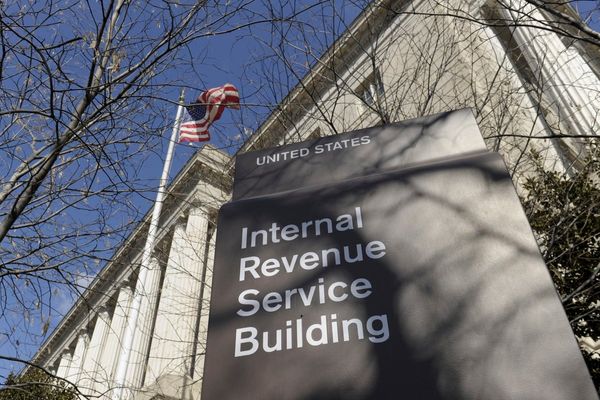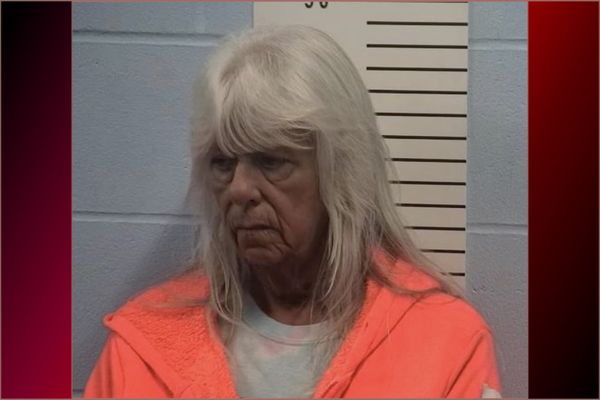
Anyone who scanned yesterday’s headlines will realize why top leaders in business and government are reluctant to exit. There were eight front-page pieces in the New York Times on Vice President Kamala Harris’ ascent and only one small item on President Joe Biden’s exit. Similarly, the Washington Post featured 13 stories on Harris’s rise and two about Biden’s departure. This pattern is also reflected in the money trail, with a record $81 million raised in 24 hours by the Harris campaign.
The ancient proclamation, “Long live the King,” usually follows the news that the king is dead. It’s no wonder that this fear of ultimate insignificance typically takes hold of the leaders we’ve studied as they suspect the impending end of their reign. Abraham Lincoln advised that a second term of office is an endorsement of the first. President Joe Biden, a leader who has much to be proud of, had to conquer such anxieties in his voluntary withdrawal from the re-election battle.
The term “Biden drop out” hit 500 million search results in China alone in the first 12 hours as people were shocked he would voluntarily step away—but Biden follows a long line of Western leaders who have voluntarily surrendered power at the end of a heroic journey.
This principled, voluntary surrender of power is so magnanimous that it caught ideological critics by surprise. Sadly, the president of the Southern Baptist Convention’s Ethics Religious Liberty Commission was forced out until he rescinded a statement expressing respect for Biden’s decision. “We should all express our appreciation that President Biden has put the needs of the nation above his personal ambition. Despite what some partisans will say, to walk away from power is a selfless act—the kind that has become all too rare in our culture,” Brent Leatherwood initially said.
A quest for immortality
The Roman ruler Lucius Quinctius Cincinnatus relinquished near-absolute authority in 458 B.C. and humbly returned to his farm putting civic virtue above personal gratification and the trappings of power. In 1797, when Britain’s King George III heard from the artist Benjamin West that his former Revolutionary War adversary President George Washington was about to set a model of patriotic humility in the U.S. by relinquishing the reins of power, the king declared “If he does that, he will be the greatest man in the world.” Presidents Harry S. Truman in 1952 and Lyndon Baines Johnson in 1968, who suffered faltering health and popularity, also exemplified such humility and valor by prioritizing the national interest over their ambitions.
Just because Biden stepped away voluntarily does not mean it was easy. The more Democrats pushed the president to drop out of the race in the aftermath of last month’s debate debacle and the more that GOP voices taunted him, the more he stubbornly dug in: Biden was not quitting what he saw as a personal and national existential undertaking and described as a “battle for the soul of the nation.”
Top leaders are driven by a quest for immortality through their leadership legacy—which I’ve termed the “heroic mission” in my book The Hero’s Farewell. The work of early Freudian disciple Otto Rank in his pivotal Art & Artist describes such individuals who are driven by a distinctive urge to create and build. In his classic The Denial of Death, Ernest Becker ironized that such leaders believe they extend their lives through their work.
Biden is deservedly proud of his record in office, having delivered a strong economy with plunging inflation (7.5% to 2.7%), the lowest unemployment (3,8%) in decades, growth that is driving 80% of the World Bank’s global forecast, and energy independence with the U.S. becoming the world’s largest energy exporter. Biden can also be credited with the economy’s rebound from the COVID-19 pandemic, fortifying health coverage, rebuilding the nation’s infrastructure, reassuring global alliances, and bringing back respect for the rule of law.
With his remarkable resilience, Biden chafed at what he saw as short-term anxieties over his failed debate performance, certain that he would prove his valor in the weeks ahead. He was never a quitter. Growing up as a child with a bad stutter in a family with uncertain income, he was used to rising above adversity and has learned to discount the cynicism of self-interested critics.
Overcoming the leader’s ‘heroic stature’
Despite his devoted, patriotic service and great successes in office, Biden’s life and career have been punctuated by tragic personal losses, such as losing his wife and daughter soon after his election in 1972, the untimely death of his near-saintly son Beau, and the travails of his more troubled son Hunter. Biden's ambitions to run for president in 2008 and 2016 were blunted by President Barack Obama’s candidacy and then by Secretary Hillary Clinton’s bid.
The recent conviction of his son for gun law violations and then his own illness during the much-touted debate showed how supremely unlucky Joe Biden has been. I spoke with him a month ago, and he seemed fine, asking me about my work and congratulating my daughter on the good fortune of her resemblance to my wife, whom he knew, instead of the alternative. Dr. Harlan Krumholz and I, backed by scores of expert physicians, questioned whether his acute cognitive impairment at the debate, followed by an immediate rebound, was the result of treatment for an illness, which I later speculated could have been COVID-19, as Biden’s physician has since acknowledged.
Biden’s subsequent unscripted TV interviews, inspiring addresses at the NATO conference he hosted, a robust open press conference fielding 19 tough questions over an hour, and two dozen rousing campaign appearances were not enough to restore the eroding confidence.
The increasing chorus of Congressional critics has had a corrosive effect on Biden’s resolve. But the confidential discussions with such allies as Speaker Emerita Nancy Pelosi, the Clintons, former president Barak Obama, as well as the support of intimate advisors such as his wife Jill, Congressional Black Caucus leader James Clyburn, Senator Chris Coons, former Senators Chris Dodd and Ted Kauffman, his sister Val, and advisors Mike Donilon and Steve Richetti were essential. So was the trusted support of Vice President Kamala Harris, Minority Leader Hakeem Jeffries, and and Senate Majority Leader Chuck Schumer. With their loyalty proven over the past few weeks, Biden came to see his immortality through the work of this next generation of leaders.
A day after dropping out of the race, while suffering from COVID-19, President Biden called into a rally at his campaign headquarters to support his successor Vice President Kamala Harris, “I know the news was hard, but it was the right thing to do. I know we made the right decision. I’ve been honored and humbled. The name has changed on the top of the ticket. I’m not going anywhere We still need to save this democracy. I will still be fully engaged, speaking out on the guns, childcare, bringing hostages home, getting the Gaza war to end. I have to keep our alliances together for our safety. I’ll be doing whatever Kamala asks me to do in addition.”
With Speaker Emerita Nancy Pelosi providing her timely endorsement to Vice President Harris, it cannot go without notice that Pelosi herself modeled the passing of the torch to the next generation, with her seamless voluntary handoff to Hakeem Jeffries, providing her unique credibility on the challenges of succession.
There is a second departure barrier for such top leaders, which I have termed “heroic stature.” In his book Frenzy of Renown, Leo Braudy showed how leaders seek celebrity to distinguish themselves and prove their uniqueness. They rely on trusted advisors, intimate friends, and family members to help reinvent themselves after leaving office.
CEOs such as PepsiCo’s Indra Nooyi, Merck’s Ken Frazier, and Doug Parker of American Airlines were all leaders whose names were hyphenated with their corporate titles and who later became models of comfortably leaving office.
Similarly, late-night TV king Johnny Carson conferred with his trusted lieutenants of 30 years, his announcer Ed McMahon, band leader Doc Severinson, and executive producer Fred DeCordova, as well as the program's writers and technicians, when he decided to step down. Then he took them all to his house for a party, deciding that three decades of his show were enough. The warning signs were already there: Carson’s audience had peaked, competition had cut his ratings, and advertising rates had plunged. Instead of looking backward to the comedy greats of the past, he saluted the competitors who were once his proteges such as Jay Leno and David Letterman. The guests that night were Bette Midler and Robin Williams, further demonstrating Carson’s faith in the new generation even as he shed a tear over this farewell.
Despite IBM’s Tom Watson Jr.'s stunning success in the computer business, he once told me “ I take as much pride in the success of my successors as I do in the fact that the company grew 10 times during my leadership.”
More must-read commentary published by Fortune:
- Women can’t fix the ‘broken rung’ unless they acknowledge the role they play in workplace bullying and discrimination
- Tech billionaires’ Trump-Vance dance is missing the point: You can’t always get what you want
- Gen Z’s enthusiasm for all things touchable is resurrecting the analog economy—and costing parents
- Nokia CEO: Europe shouldn’t be afraid to back its innovation champions
The opinions expressed in Fortune.com commentary pieces are solely the views of their authors and do not necessarily reflect the opinions and beliefs of Fortune.







